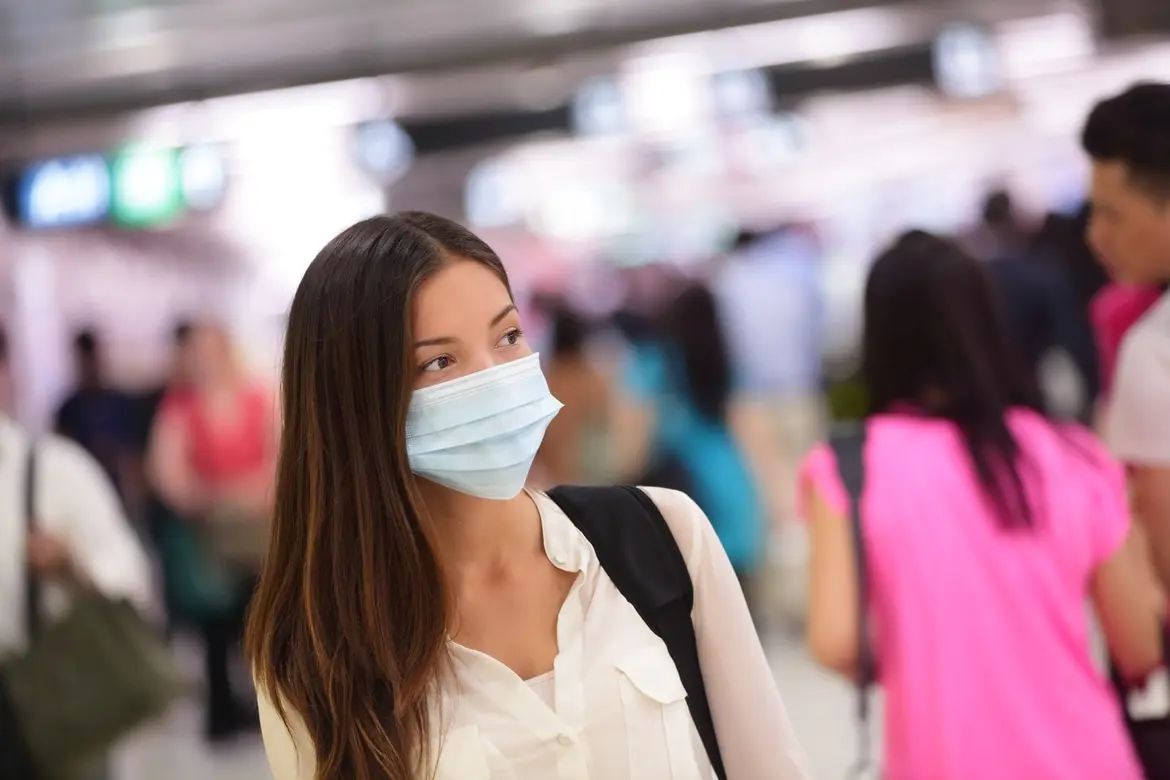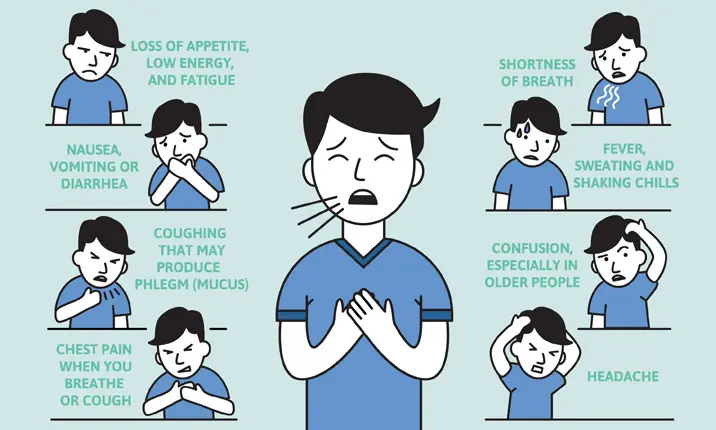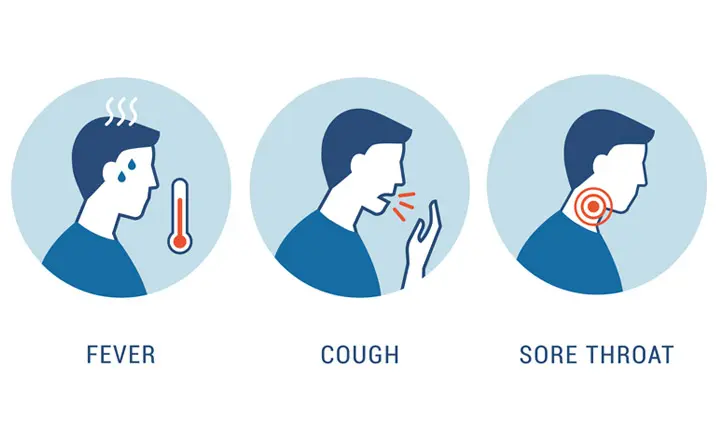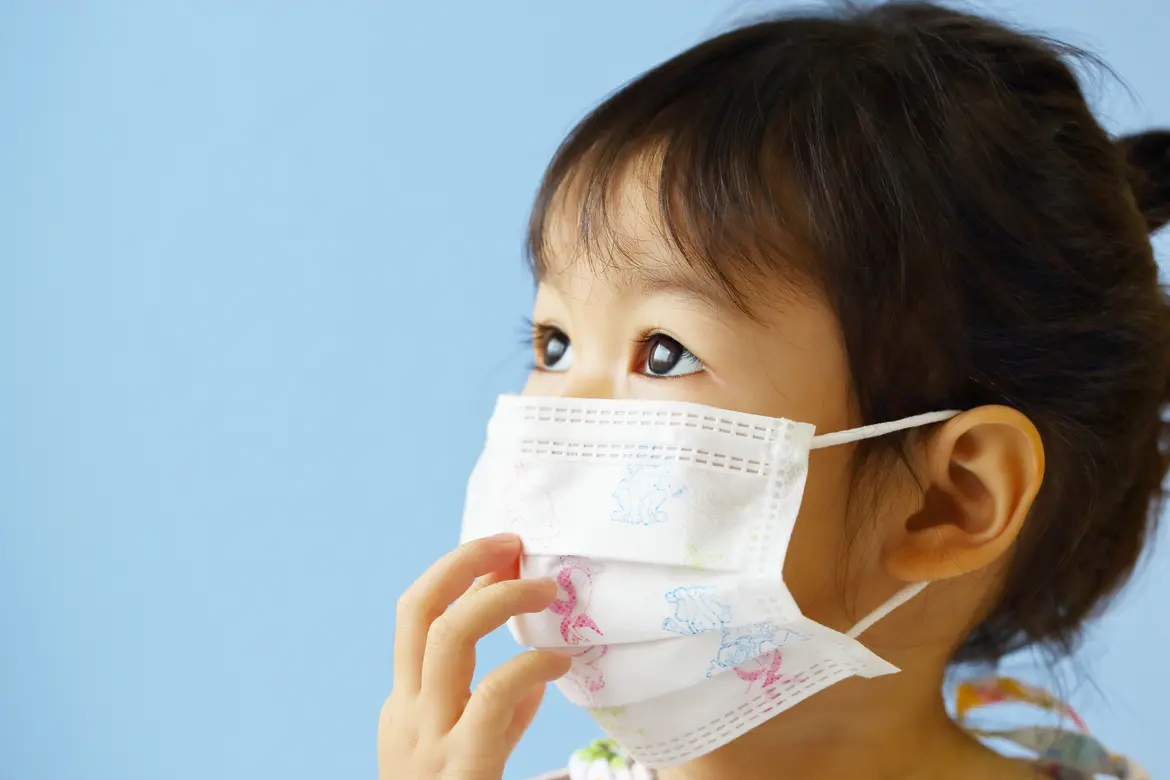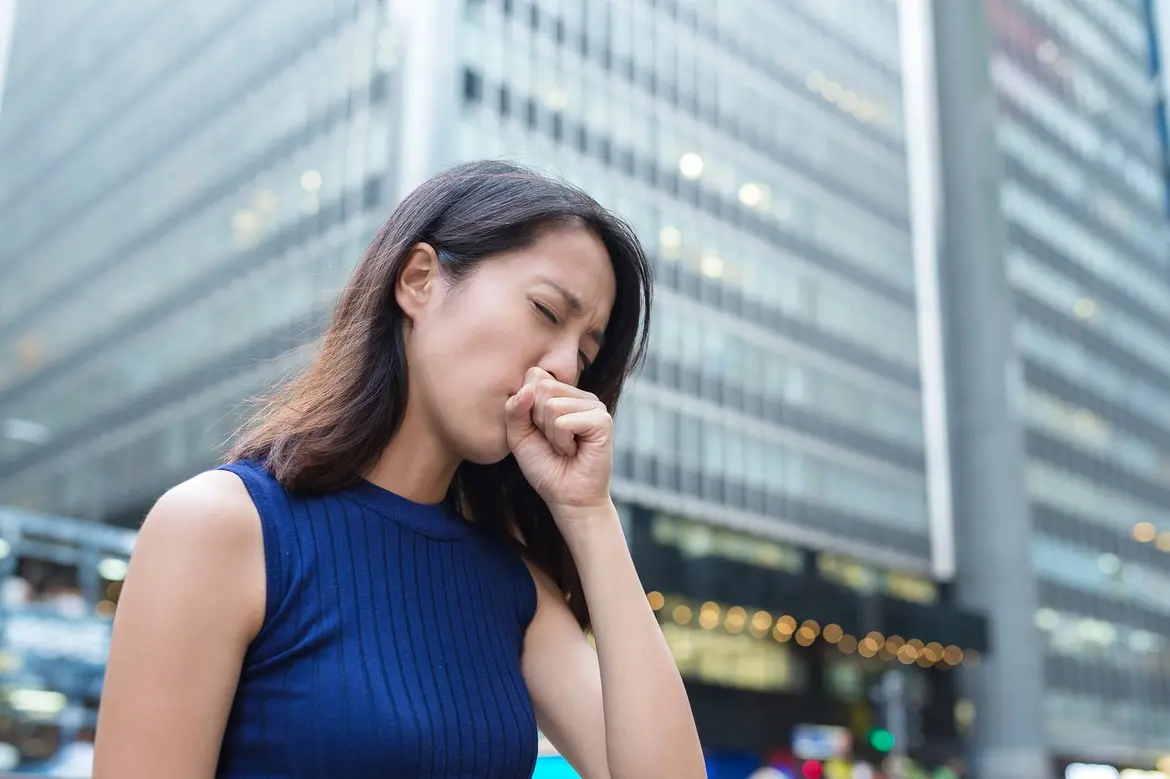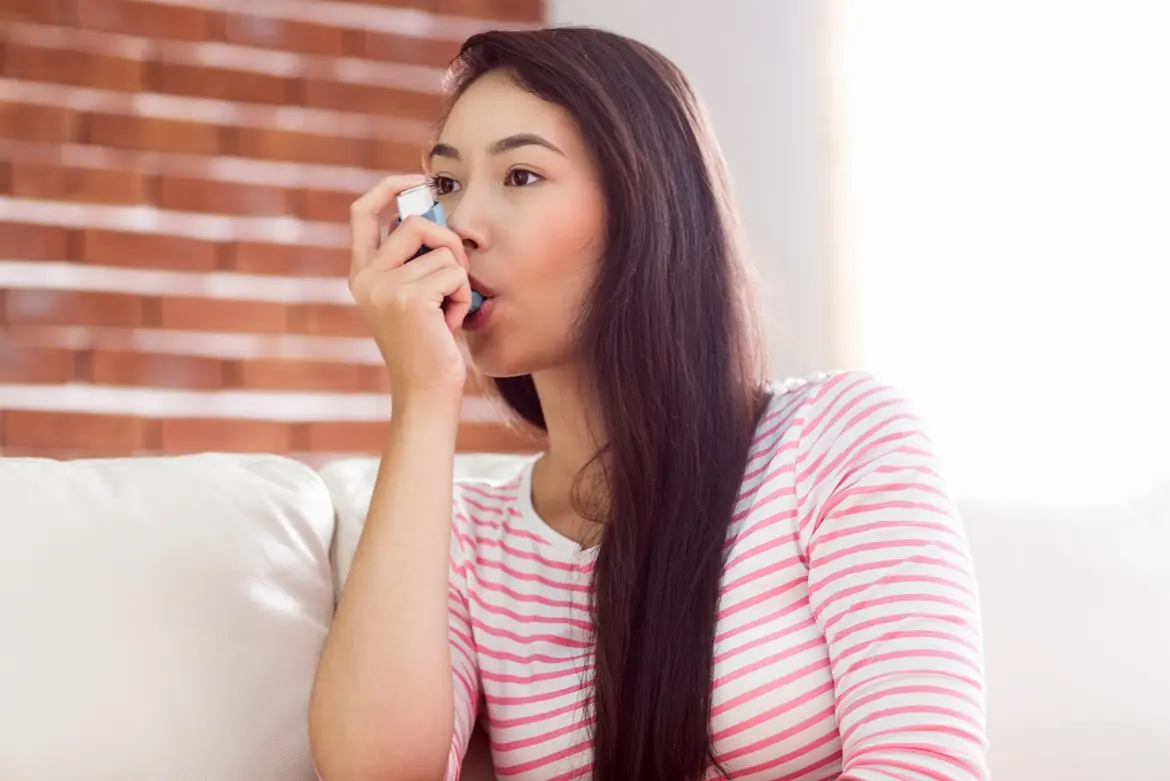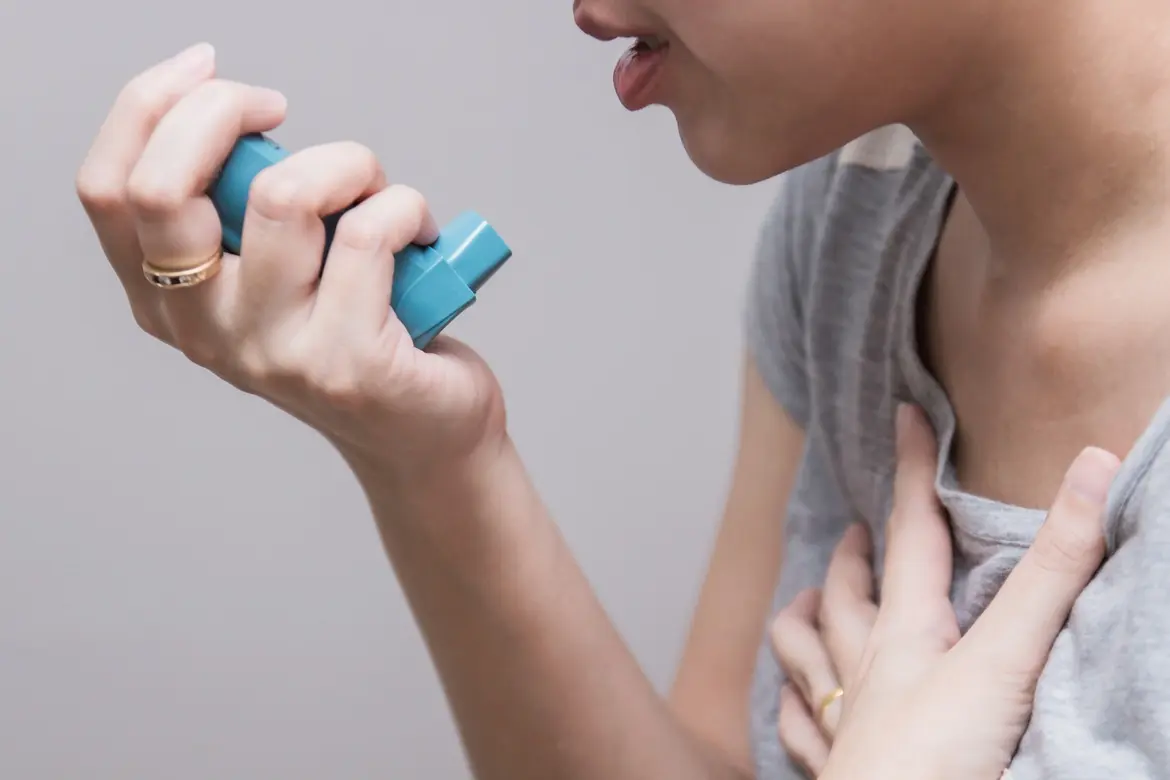What is Pneumonia?
Pneumonia is a potentially life-threatening condition that causes the air sacs in the lungs to become filled with pus or fluid. It is caused by many pathogens, of which Streptococcus Pneumoniae is the most common. Other pathogens include viruses which can cause influenza. These infections are usually treated with antiviral medications or antibiotics, sometimes in combination.
How can I tell that I have pneumonia and not a cold or the flu?
Pneumonia can develop as a result of flu. Common symptoms of flu are fever or chills, cough or sore throat, and a runny or stuffy nose. When you have the flu, you may also experience a headache, fatigue and body aches.
With pneumonia, which is a lung infection, symptoms will affect the respiratory tract and breathing difficulties are common. This will be accompanied by a fever, body chills, and a cough that may produce blood-tinged phlegm. Some patients may also experience pain in the chest when taking deep breaths.
Symptoms of pneumonia
When you have pneumonia, you may experience some, but not necessarily all of the following symptoms:
- Fever (38 degrees Celsius or higher)
- Chills
- Diarrhoea
- Difficulty breathing
- Coughing
- Decreased appetite
- Extreme fatigue
- Inability to walk a few steps without getting breathless
- Bluish fingernails and lips
- Pain when breathing deeply
- Quick heartbeat and breathing
- Sweating
- Yellow, greenish or bloody mucus when you cough
- Increased lethargy or sleepiness, and urinary incontinence in the elderly
Additional symptoms to note for children:
- Laboured and rapid breathing
- Wheezing
- Fussiness
- Paleness
- Limpness and lethargy
- Crying more than usual
- Feeding poorly or vomiting
- Irritability
- Restlessness
- Flushed skin
Diagnostic tests for pneumonia
To diagnose pneumonia, your doctor will review your medical history and conduct a physical examination. This will be followed by diagnostic tests to confirm if you have pneumonia.
Common diagnostic tests for pneumonia include chest X-rays, complete blood count and pulse oximetry.
In situations where the patient is older, severe symptoms are present, or the presence of any other health problems, your doctor may recommend additional tests such as blood gas, sputum, blood culture, bronchoscopy or chest computed tomography (CT) scan.
Who is at risk for pneumonia?
Children and the elderly have a higher risk of developing pneumonia. Especially if they:
- Are below 5 years of age or above 65 years of age
- Have had a recent respiratory infection, or recent surgery
- Have swallowing difficulties
- Smoke
- Have any of the following conditions:
- Asthma
- Bronchiectasis (abnormally dilated air-passages)
- Cerebral palsy
- Chronic obstructive pulmonary disease (COPD) - usually in smokers
- Cystic fibrosis
- Decreased brain function (eg. stroke)
- Diabetes
- Heart disease
- Liver cirrhosis (from viral hepatitis or excessive alcohol intake)
- Weakened immune system (on high dose steroid therapy, HIV positive patients, on chemotherapy)
- Chronic kidney disease on regular dialysis (whether on regular dialysis or not)
Causes of pneumonia
Pneumonia can be acquired outside of a healthcare setting, even if you may be healthy, and this is known as community-acquired pneumonia. Community-acquired pneumonia can happen through the following ways:
Through a virus – Viral pneumonia is a mild type of pneumonia. It is most commonly acquired by infants under the age of two following a cold, influenza, or Respiratory Syncytial Virus (RSV). Viral Pneumonia can become serious if left untreated.
From bacteria – Bacterial pneumonia can occur on its own, or after you have been sick with another illness. It can be caused by different types of bacteria and typically affects one lobe of the lung.
From fungi – Fungal pneumonia can be acquired by breathing in fungal organisms. Common examples include bird droppings or soil containing fungi. People with a weakened immune system are most susceptible.
Through aspiration – Aspiration pneumonia can develop if you inhale saliva, vomit, food, or drink into your lungs either by accident or as a result of a brain injury, illness, or during abuse of drugs or alcohol.
Healthcare-acquired and Hospital-acquired pneumonia
Pneumonia can also be acquired in a healthcare or hospital setting and is known as healthcare-acquired and hospital-acquired pneumonia respectively.
Healthcare-acquired pneumonia is caused by bacteria present in outpatient clinics or long-term care facilities and can be difficult to treat as such bacteria is often resistant to antibiotics.
Hospital-acquired pneumonia can develop during a hospital stay while being treated for another condition. Again, being resistant to treatment, this type of pneumonia is difficult to treat, and requires stronger antibiotics with potentially more side-effects.
How is the COVID-19 novel coronavirus related to pneumonia?
The novel coronavirus COVID-19, first called 2019-nCoV and now better known as COVID-19, is a relatively new virus. Presently, there is a lack of data on the behaviour of this new strain, and the community is racing against time to learn more about it. Health authorities have established that this virus can be passed from human to human.
Common symptoms of COVID-19
- Fever
- Cough
- Sore throat
- Muscle aches
- Shortness of breath
- Loss of sense of smell
When the disease progresses, the patient is also likely to develop pneumonia and start experiencing breathlessness.
Protect yourself from the COVID-19 novel coronavirus
Members of the public are advised to do the following:
- Practise good personal hygiene, such as washing your hands frequently with soap
- If you have a fever, cough or runny nose, seek medical treatment
- Avoid touching any part of your face without first washing your hands
- Wear a mask when you leave the house
- Avoid crowded places with big groups of people
When to see a doctor
While you can recover from a cold on your own, pneumonia requires medical treatment because it is a lung infection that can turn deadly. Should you suspect pneumonia, see a doctor right away for an accurate diagnosis and timely treatment. The earlier pneumonia is diagnosed, the easier it is to treat.
When to go to the UCC
Seek treatment immediately at the nearest [Urgent Care Centre (UCC)](/urgent-care-centre/overview “Urgent Care Centre”) if you notice the following symptoms: a high fever, inability to keep food down, experiencing breathing issues, acting confused or delirious, or coughing up blood. These are serious complications of pneumonia and have to be attended to immediately, especially if the sufferers are children or elderly.
Those who suspect they may have contracted the COVID-19 novel coronavirus should visit the nearest UCC for medical attention.
